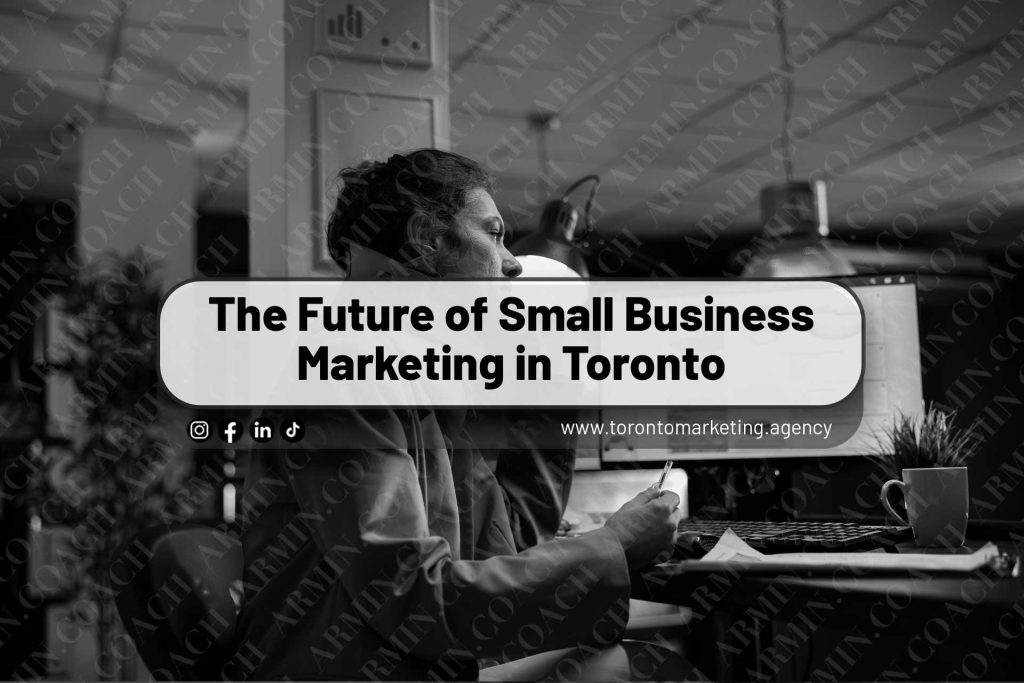Why Local Marketing in Toronto Matters
Toronto isn’t just Canada’s largest city it’s also one of the most competitive markets for businesses of all sizes. From boutique coffee shops in Queen West to global tech startups in the Financial District, every brand is fighting for attention. And while Toronto offers a massive audience, it also presents a challenge: how do you stand out in a city full of options?
The answer lies in local marketing in Toronto. Unlike broad national campaigns, local marketing strategies allow businesses to focus on the unique needs of Toronto consumers, connect with communities, and drive real foot traffic and online conversions.
In this article, we’ll explore proven strategies for marketing in Toronto that actually work. We’ll break down digital tactics like local SEO, Google Business Profile optimization, social media marketing, and content creation, as well as offline approaches such as community partnerships, events, and print media. You’ll learn which strategies bring the highest ROI, how to measure success, and what mistakes to avoid.
If you want your business to succeed in Toronto’s bustling market, this is your ultimate guide.
Understanding the Toronto Market
Demographics and Consumer Behavior
Toronto is one of the most diverse cities in the world, with over 200 ethnic groups and more than 160 languages spoken. This cultural diversity means businesses must tailor their marketing messages to resonate with different communities.
Key demographics:
- Population: Over 2.9 million in Toronto proper, 6+ million in the Greater Toronto Area (GTA).
- Median age: Around 40, with a significant proportion of young professionals and families.
- Income levels: Wide range, but Toronto boasts one of Canada’s highest concentrations of high-income earners.
Understanding these demographics helps businesses design targeted campaigns that connect with local audiences.
Local Consumer Trends
- Digital-first mindset: Torontonians frequently research businesses online before making a purchase.
- Community-focused: They value supporting local businesses and sustainable brands.
- Experience-driven: Consumers look for personalized experiences, not just products.
Digital Marketing in Toronto – Where to Start
The Role of Local SEO
When people search for “best coffee shop near me” or “plumber in Toronto,” they rely on Google’s local search results. Appearing in the Google Local Pack is crucial for visibility.
Steps to Improve Local SEO
- Google Business Profile Optimization
- Add accurate business information (NAP: Name, Address, Phone).
- Upload high-quality photos of your business.
- Collect positive reviews from customers.
- Local Keyword Targeting
- Use long-tail keywords like “family dentist in North York” or “Italian restaurant downtown Toronto.”
- Incorporate these naturally into your website content.
- Local Citations
- List your business on directories like Yelp, YellowPages, and BlogTO.
- Ensure consistency across all platforms.
- Mobile Optimization
- Over 70% of local searches happen on mobile devices.
- A mobile-friendly website is non-negotiable.
Social Media Marketing in Toronto
Toronto has a highly active social media community. Platforms like Instagram, TikTok, LinkedIn, and Facebook play a massive role in shaping consumer choices.
Instagram and TikTok
- Showcase behind-the-scenes videos, customer stories, and Toronto-specific hashtags (#TorontoEats, #TorontoLife).
- Collaborate with Toronto-based influencers who can bring credibility.
LinkedIn for B2B Marketing
- Toronto is home to thousands of startups, law firms, and financial services companies.
- Share thought leadership content to attract business clients.
Paid Advertising (PPC and Social Ads)
Google Ads
- Geo-target ads to focus on Toronto neighborhoods.
- Use location extensions to show your business address.
Social Ads
- Facebook Ads Manager allows precise targeting by postal codes.
- Highlight promotions for local events like TIFF (Toronto International Film Festival) or Caribana.
Content Marketing in Toronto
Blogging with a Local Twist
Write blog posts that appeal to Toronto audiences. For example:
- “Top 10 Brunch Spots in Downtown Toronto” (for a hospitality brand).
- “How Toronto Winters Affect Your Plumbing” (for a service provider).
Video Content
- Short-form videos about your brand’s story.
- Event coverage from Toronto festivals and markets.
Case Study – Local Content Success
A Toronto fitness studio started blogging about “Best Running Trails in Toronto” and “Tips for Surviving Winter Workouts.” These blogs ranked high on Google, bringing in organic traffic and new memberships.
Offline Local Marketing Strategies
Community Events and Sponsorships
- Sponsor local events like charity runs, cultural festivals, or school programs.
- Create pop-up shops at local markets (e.g., St. Lawrence Market).
Print Marketing
- Flyers, brochures, and local magazines like Toronto Life.
- Coupons distributed in local neighborhoods.
Partnerships with Other Businesses
- Cross-promotions with nearby businesses.
- Example: A café partnering with a local bookstore for bundled promotions.
Comparing Digital vs. Offline Marketing in Toronto
When it comes to marketing in Toronto, businesses often face a key question: should they focus more on digital strategies like SEO and social media, or rely on offline approaches like community events and print advertising? The truth is, both have strengths and weaknesses, and the most successful brands often use a mix of both.
Local SEO: The Digital Backbone
Local SEO ensures your business appears in searches like “pizza near Yonge Street.” It delivers long-term visibility, but it requires patience and consistent optimization.
Social Media Marketing: Building Engagement
Instagram and TikTok campaigns can put your brand in front of thousands of Torontonians quickly. The flip side? It requires constant content and active management.
Paid Advertising: Speed and Targeting
Google Ads and social ads give immediate results and precise targeting. The cost, however, can be high—especially in competitive niches like law or real estate.
Community Events: Earning Trust Offline
Sponsoring events like TIFF or local charity runs builds face-to-face trust. While harder to scale, the relationships built often outlast digital impressions.
Print Advertising: Tangible but Limited
Flyers, posters, and magazine ads still have a place. They’re affordable and good for hyperlocal targeting, but measuring ROI is more difficult compared to digital methods.
Which Works Best?
The answer depends on the industry:
- A plumbing company thrives with SEO and PPC.
- A restaurant gains traction through social media and event sponsorships.
- A fashion boutique benefits from both digital ads and in-person pop-up events.
The most effective marketing in Toronto happens when businesses combine the scalability of digital campaigns with the trust-building power of offline connections.
Real-World Comparison: Digital vs. Offline Marketing in Toronto
Case Study 1: The Toronto Coffee Shop
- Digital: Built an Instagram presence with daily Reels and Toronto-specific hashtags, attracting thousands of viewers.
- Offline: Sponsored a booth at the Toronto Christmas Market, gaining loyal, repeat customers.
Result: Digital drove awareness; offline built loyalty.
Case Study 2: The Toronto Plumbing Company
- Digital: Optimized for “emergency plumber Toronto,” landing in Google’s local 3-pack.
- Offline: Distributed flyers and fridge magnets in condos.
Result: SEO brought calls, while offline kept them top-of-mind.
Case Study 3: The Toronto Fashion Boutique
- Digital: Targeted Facebook and Instagram ads boosted online store sales.
- Offline: A pop-up shop at the Distillery District created personal connections.
Result: Online visibility + offline experience = 30% sales boost.
Case Study 4: The Local Restaurant in Kensington Market
- Digital: Blog content ranked for brunch and Italian cuisine searches.
- Offline: Hosted a free pasta-making workshop, covered by local media.
Result: Doubled reservations on weekends.
Case Study 5: The Toronto Fitness Studio
- Digital: Created workout videos optimized for SEO and social.
- Offline: Sponsored a local charity run with branded giveaways.
Result: Online reach + offline trust led to membership growth.
Measuring Local Marketing Success
Key Metrics
- Website traffic from Toronto IPs.
- Google Business Profile insights.
- Social media engagement (likes, shares, comments).
- Conversion rates from local campaigns.
Tools to Use
- Google Analytics 4 (location reports).
- SEMrush or Ahrefs (local keyword tracking).
- Hootsuite for social media performance.
Common Mistakes in Local Marketing in Toronto
- Ignoring mobile optimization.
- Using generic content instead of Toronto-specific messaging.
- Not responding to online reviews.
- Over-relying on one marketing channel.
- Failing to track ROI.
Advanced Local Marketing Strategies
Hyperlocal Targeting
Focus on neighborhoods like Scarborough, Etobicoke, or Liberty Village. Create landing pages for each area to capture hyperlocal searches.
Voice Search Optimization
People increasingly ask, “Where’s the nearest coffee shop in Toronto?” Optimize content with conversational, question-based keywords.
Leveraging Toronto’s Events Calendar
Align marketing with events like TIFF, Pride Toronto, Raptors playoffs, and seasonal festivals for maximum visibility.
Frequently Asked Questions (FAQs)
Q1: What is the best marketing strategy for small businesses in Toronto?
The best strategy combines local SEO, Google Business Profile optimization, and social media marketing.
Q2: How much does local marketing in Toronto cost?
Budgets vary. SEO campaigns can start around $1,000/month, while social ads may cost $500–$5,000/month.
Q3: Does print marketing still work in Toronto?
Yes, especially in community-driven neighborhoods where local flyers and magazines build awareness.
Q4: How important are reviews for Toronto businesses?
Over 85% of Torontonians trust online reviews as much as personal recommendations.
Q5: Can I manage marketing in Toronto myself?
Yes, but outsourcing to professionals usually brings faster results and avoids costly mistakes.
Conclusion: Mastering Local Marketing in Toronto
Toronto is a city of opportunities—but also of fierce competition. The businesses that thrive are those that combine digital marketing (SEO, social media, PPC) with community-driven offline strategies (events, partnerships, print).
By tailoring your campaigns to Toronto’s diverse audience and staying consistent, you can build brand recognition, increase sales, and dominate your local market.



